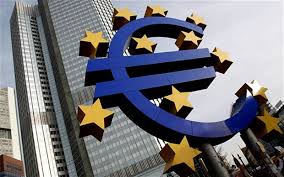The Euro zone or the Euro area is an economic and monetary union of a bloc of 19 countries within the European Union, which in itself is a confederation of 28 nations primarily from Europe, forming an economic union. The countries of the Euro zone use a common currency called the Euro and share a common independent monetary policy which is presided over by the European Central Bank. The adoption of a common currency eliminates risks arising from fluctuations in the value of foreign currencies and equilibrates the value of inter-country transactions.
The Convergence criteria of the Euro zone:
The Convergence criteria or the Maastricht criteria are the conditions for entering the economic and monetary union of the Euro zone. They ensure that countries wishing to join the zone integrate smoothly without disrupting other euro zone countries and the euro zone as a whole and are prepared to adopt the euro. The criteria are as follows-
1. Price stability: This ensures that inflation is under control. Here the consumer price inflation rate should not be more than 1.5 percentage points above the rate of the three best performing Member States.
2. Sound and sustainable public finances: Government deficit should not be more than 3% of GDP and government debt should not exceed 60% of GDP, except for certain extreme cases. This condition has been violated by many big countries (including Germany, France, Italy, etc) right since the Euro zone’s inception which has been the prime reason behind the sovereign debt crisis of the Euro zone. Greece has been the worst offender because it got into the Euro zone by manipulating its debt statistics to make them look good.
3.Exchange-rate stability: This entails participation in the Exchange Rate Mechanism (ERM II) for at least two years without strong deviations from the ERM II central rate. The ERM II central rate is the exchange rate of a non-euro area nation agreed against the euro. The currency is allowed to fluctuate within fixed limits of this rate i.e. by up to 15% above or below this rate. This demonstrates that the potential member nations can manage their economies efficiently without recourse to frequent exchange rate fluctuations because , with the euro zone ticket a nation loses control over its monetary policy as it hands it over to the European central bank. It also indicates the appropriate conversion rate of the local currency to the Euro, which is irrevocably fixed when a country qualifies to the zone. Greece was also a part of this mechanism from 1999 till 2001.
4.Long term interest rates: They should not be more than 2 percentage points above the rate of the three best performing Member States in terms of price stability. This condition measures the durability of the convergence.
These criteria were formulated to ensure a healthy Eurozone, however the condition of sound public finances was not adhered to rigorously which is one of the causes of the Eurozone crisis.
Click here for government certification in Accounting, Banking & Finance





1 Comment. Leave new
Nice